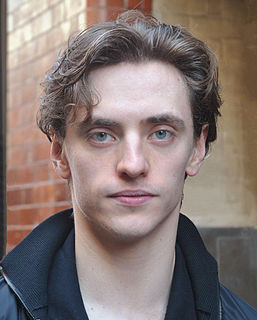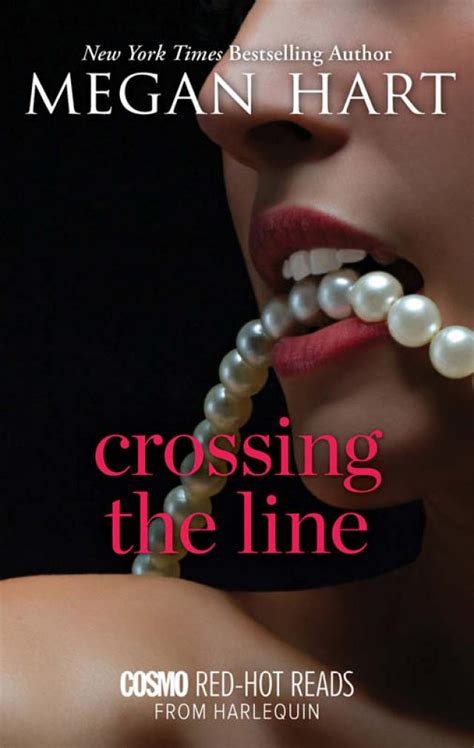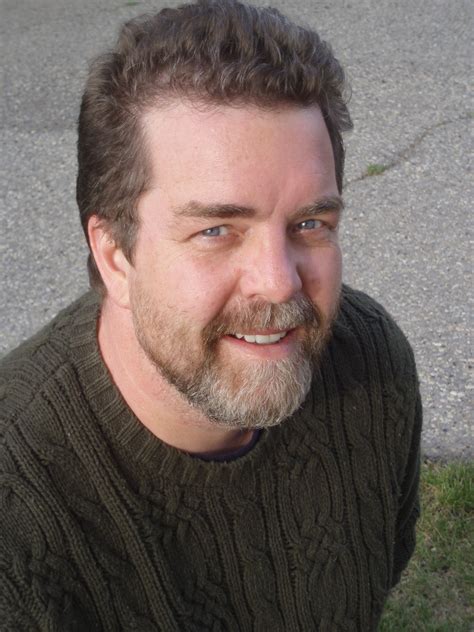A Quote by Wendell Berry
If I was freer than I had ever been in my life, I was not yet entirely free, for I still hung on to an idea that had been set deep in me by all my schooling so far: I was a bright boy and I ought to make something out of myself... something else that would be a cut or two above my humble origins.
Related Quotes
Failure meant a stripping away of the inessential. I stopped pretending to myself that I was anything other than what I was, and began to direct all my energy to finishing the only work that mattered to me. Had I really succeeded at anything else, I might never have found the determination to succeed in the one area where I truly belonged. I was set free, because my greatest fear had been realized, and I was still alive, and I still had a daughter whom I adored, and I had an old typewriter, and a big idea. And so rock bottom became a solid foundation on which I rebuilt my life.
It would perhaps not be amiss to point out that he had always tried to be a good dog. He had tried to do all the things his MAN and his WOMAN, and most of all his BOY, had asked or expected of him. He would have died for them, if that had been required. He had never wanted to kill anybody. He had been struck by something, possibly destiny, or fate, or only a degenerative nerve disease called rabies. Free will was not a factor.
Doing 'All Good Things' really felt like I was acting for myself rather than anyone else. It gave me a freedom I'd never had before, or knew I had, to do whatever I want to, and to argue my opinions and not just feel like the cute girl on set or the girl in a boy's club. I figured out how I could be both. And it's been different ever since.
I had in effect been thrown out of graduate school because I was a lousy graduate student, and I had to find a job, and I took the first job that came along. It happened to be a management trainee job in a life insurance company, and I just stayed. It was always, mainly, the idea was that I would support myself as a writer, and I knew I would have to have some sort of work, and it didn't make a whole lot of difference to me what it was. I mean, I could have been a paper hanger or something for that matter.
I had run away from home three times. I had been kicked out of three different schools under different circumstances. I was kicked out of everything that I didn't quit. Kicked out of schools. Kicked out of summer camp, the Boy Scouts, the altar boys, the choir, and something else that I can't think of, that I'm proud of. Anyway, that was my pattern. I just began to invent myself early in life, and went out and did something about it.
At a young age, I really wanted to make music and make my own sort of thing. I'm sure if it wasn't music, it would have been writing, or it would have been maybe painting. I just always had the drive to try and make something with my hands and to just pull something out of myself and shape it and see it in front of me, if that makes any sense.
Mia and I had been together for more than two years, and yes, it was a high school romance, but it was still the kind of romance where I thought we were trying to find a way to make it forever, the kind that, had we met five years later and had she not been some cello prodigy and had I not been in a band on the rise - or had our lives not been ripped apart by all this -I was pretty sure it would've been.
I learned early that crying out in protest could accomplish things. My older brothers and sister had started to school when, sometimes, they would come in and ask for a buttered biscuit or something and my mother, impatiently, would tell them no. But I would cry out and make a fuss until I got what I wanted. I remember well how my mother asked me why I couldn't be a nice boy like Wilfred; but I would think to myself that Wilfred, for being so nice and quiet, often stayed hungry. So early in life, I had learned that if you want something, you had better make some noise.
No one in my family or my circle of friends had ever had to confront something like this. Jamie was seventeen, a child on the verge of womanhood, dying and still very much alive at the same time. I was afraid, more afraid than I'd ever been, not only for her, but for me as well. I lived in fear of doing something wrong, of doing something that would offend her. Was it okay to ever get angry in her presence? Was it okay to talk about the future anymore?
He hadn’t been her first lover or the first boy to give her an orgasm. He hadn’t even been the first she’d loved. He’d been the first to turn her inside out with something as simple as a smile. The first to make her doubt herself. He’d taken her deeper than anyone ever had, and yet she hadn’t drowned.
All this time…ever since I sold my soul, I’ve been clinging to this idea that there is something pure and decent out there. That there was something to give me hope that even if I was a lost cause, at least there was something bright and good in the world. But there isn’t. If there was, Seth wouldn’t have fallen. Erik wouldn’t have died. Andrea Mortensen wouldn’t be dying.” -Georgina to Carter
I learned to read a little in my primer, to write my own name, and to cypher some in the three first rules in figures. And this was all the schooling I ever had in my life, up to this day. I should have continued longer if it hadn't been that I concluded I couldn't do any longer without a wife, and so I cut out to hunt me one.
Human nature, at its best, had always been based on a deep heroic restlessness, on wanting something-something else, something more, whether it be true love or a glimpse just beyond the horizon. It was the promise of happiness, not the attainment of it, that had driven the entire engine, the folly and glory of who we are.





































